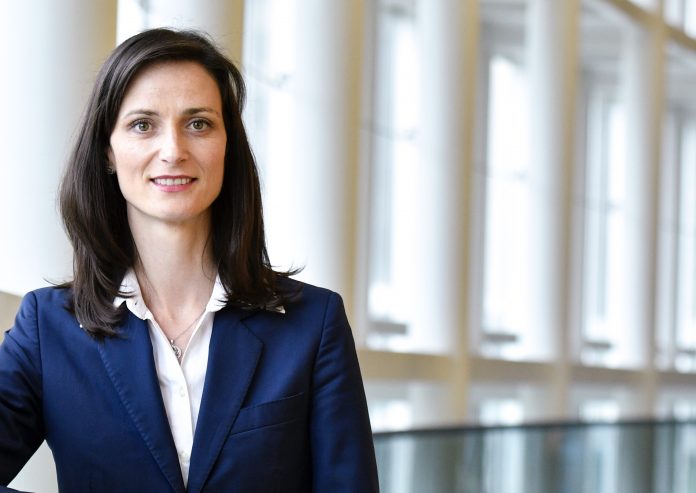Mariya Gabriel, European Commissioner for Digital Economy and Society explains how building a digital future for all in Europe can be achieved
In Europe, we believe that the future is digital. In 2015, the European Commission launched the Digital Single Market strategy, making digital technology and digitisation one of the key priorities of the political agenda. Since then, we have seen nearly 60 initiatives delivered, including 29 legislative proposals from which 17 have already been agreed in the European Parliament and the Council of the European Union.
More importantly, some of the implemented rules are already showing positive tangible effects on the lives of our citizens. One of the greatest successes of Europe’s digital agenda has been to put an end to roaming charges. Since last year, citizens can communicate via their mobile phones and devices wherever they are in the EU, without being obliged to pay additional and often disproportionately high tariffs. Other good news is the portability of digitally subscribed content. Since April 2018, our citizens can watch their favourite TV series or listen to their preferred music they have subscribed to at home while travelling across the EU.
There is still more to come, with other proposals and plans being adopted. The Commission has recently finalised the negotiations with the European Parliament and the Council of the European Union on other important reforms, including regulatory frameworks on electronic communication, audio-visual media services and the free flow of non-personal data. On the 5G telecommunication system and network, we have set the target to make this coverage available across Europe by 2025.
Whilst the Digital Single Market legislative work has been rolling out and delivering, we at the same time see the crucial need for our citizens to have the skills that match and fit the inevitable digital transformation of Europe. This ranges from basic online competencies, such as accessing communication services and managing personal online administration, to advanced programming and technical expertise. Digital skills are today as fundamental as reading and writing – they have become a means of citizen empowerment and work advancement.
The digital transformation is also having a major impact on industries and the labour market as we see its implementation across sectors – from agriculture and transportation to healthcare and education. In fact, today, 90% of jobs require some level of digital competencies. Local and national companies, as well as international corporations, are increasingly seeking IT skilled workers, including highly-skilled information and communication technology (ICT) experts, who have the ability to rethink and innovate the companies’ products and services.
However, 40% of businesses looking for ICT specialists have difficulties in finding the right candidates. There are currently more than 400,000 open vacancies for ICT specialists in Europe. To close this gap, the Commission put digital skills among the ten priority actions of the new “Skills Agenda for Europe” launched in June 2016. Named “Digital Skills and Jobs Coalition”, this plan commits private and public organisations as well as education providers to offer more short-term and long-term ICT training schemes, develop digital jobs placement programmes and motivate young people to pursue ICT related careers. The Coalition currently counts over 390 members and 102 pledges to boost digital skills and provided over 7.5 million digital skills training, greatly exceeding our initial target of 1 million.
Focusing specifically on equipping the young generation with digital competence, the Commission also launched the Digital Education Action Plan in January 2018. With this programme, we want to help education systems by adapting to the digital age and integrating digital technologies in teaching methods, thereby increasing digital competencies among students. Using digital tools in teaching also enables young Europeans – often enthusiastic users of the web, apps and online games – to be aware of the underlying structures and algorithms behind technology.
We need to help our future generation to become active digital creators and innovators. That is why the Commission launched the Digital Opportunity traineeship initiative, which facilitates cross-border traineeships in digital areas for 6,000 students and recent graduates between 2018 and 2020. I would also like to see greater participation of schools in initiatives such as the EU Code Week, promoting computational thinking, coding and tech-related activities. With last year’s record participation of 1.2 million people in more than 50 countries, I hope that by 2020, 50% of schools across Europe will be joining in.
But policies and initiatives alone cannot ensure a successful and smooth digital transition of Europe. This also requires a sustained and solid support of concrete investment programmes. And this is why the Commission in May 2018 proposed to create the first ever Digital Europe programme and thereby invest €9.2 billion between 2021 and 2027 into Europe’s key strategic capacities. These capacities include supercomputing, artificial intelligence (AI), cybersecurity and advanced digital skills, as well as increasing the accessibility of digital technologies to the private and public sectors. This long-term budget proposal reflects our commitment to Europe’s digital success.
With a digital future in perspective, it is my mission as the Commissioner for Digital Economy and Society to ensure that all Europeans – regardless of gender, age, nationality and socio-economic circumstances – can enjoy the possibilities and benefits of digital technology through well-targeted EU policies, focused initiatives and appropriate investment.
Mariya Gabriel
European Commissioner for Digital Economy and Society
European Commission
cab-gabriel-contact@ec.europa.eu
https://ec.europa.eu/commission/commissioners/2014-2019/gabriel_en











